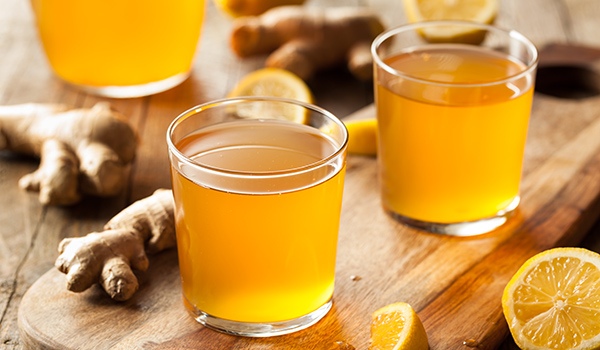
Kombucha exploded onto the scene in the last five years. Celebrities swear by its’ health benefits. And of course, all of a sudden it became the rage. But is Kombucha good for you? Is there evidence that it is as healthy as it has been touted to be or is this just another fad that will pass away? In this post, we are laying out all the cards when it comes to Kombucha.
What is Kombucha?
Kombucha is a tea and sugar mixture (sometimes infused with different types of fruit juices) that is fermented using a mixture of bacteria and yeast cultures. It can be made at home if you buy the right bacteria/yeast cultures or you can buy it at a health food store. A recent study showed that 2 groups of bacteria- Gluconacetobacter and Lactobacillus– make up the majority of the culture that is used to ferment Kombucha. Lactobacillus is also common in probiotic drinks and yogurts.
The truth about Kombucha.
A quick search of the term “Kombucha” in the National Institutes of Health Database, Pubmed yields a total of 105 scientific articles that have been written about Kombucha (as of May 8 2018). In the grand scheme of things, 105 articles on Kombucha is not a lot. However, it is interesting to see what has been written about Kombucha in research literature. The earliest of these articles was written in 1990. In that article, the author talks about one Dr. Skenlar who in the 1960s had claimed that a Kombucha concoction healed seven patients of cancer. Although the doctor had claimed this, it appears it was never reported in a medical journal and later scientists did not have an explanation for the claims. Articles written after that generally had a negative outlook on the health benefits of Kombucha. A sample of words used in the titles of those articles include:
“Kombucha- toxicity alert”
“Kombucha: a dubious cure”
“Unexplained severe illness possibly associated with consumption of Kombucha tea”
As a matter of fact, the last one was a report that came directly from the Center of Disease Control (CDC)- the same government organization that handles outbreaks like Ebola. This is definitely not a sight for sore eyes! Is there anything good to be said about Kombucha?
Interestingly, after those few negative reports, the articles that come after 2000 began to ask deeper scientific questions into Kombucha and how it might contribute to human health. Benefits of drinking Kombucha began to crop up. In more recent reports, the following benefits of Kombucha began to be suggested.
10 research-backed benefits of Kombucha
- In this study, the researchers fed Kombucha to mice for 3 years. The mice that drank Kombucha lived longer than the mice that didn’t.
- Kombucha has been found to be antimicrobial. In a study, Kombucha fermented for four days killed a wide range of bacteria that can be difficult to get rid of.
- Kombucha is a powerful antioxidant. Anti-aging anyone?
- In the same study above, the researchers found that Kombucha can improve the immune system.
- Kombucha may help a person heal faster after surgery. Researchers were able to show that rats healed faster and better after an operation when they were given Kombucha as a treatment.
- Kombucha might keep your liver healthy.
- Kombucha alleviated diabetes symptoms in rats.
- Kombucha prevented the absorption of low density lipids (LDLs) and triglycerides which are considered “bad fat” and increased the absorption of high density lipids (HDLs) which is considered “good fat”.
- Kombucha has been found to heal stomach ulcers.
- It is suspected that some of the chemicals released during fermentation of Kombucha may reduce high blood pressure.
Is Kombucha Good For You?
While most of these studies have been done using mice or rats, the reports coupled with individual accounts show that drinking Kombucha could be beneficial. However, as it is with anything, Kombucha might not be good for certain people. In fact, since Kombucha is a fermented drink that contains multiple chemicals- some of which have not yet been described- if you are on certain medications it may be dangerous. For instance, taking antihistamines with Kombucha may not be a great idea. Fermentation releases alcohol. An alcohol-antihistamine mixture will increase drowsiness. If you have special health conditions or are on particular medications, it is wise to check with your doctor before you start drinking Kombucha.
Did you enjoy this post? Share it with someone else who may be asking “Is kombucha good for you?”.

